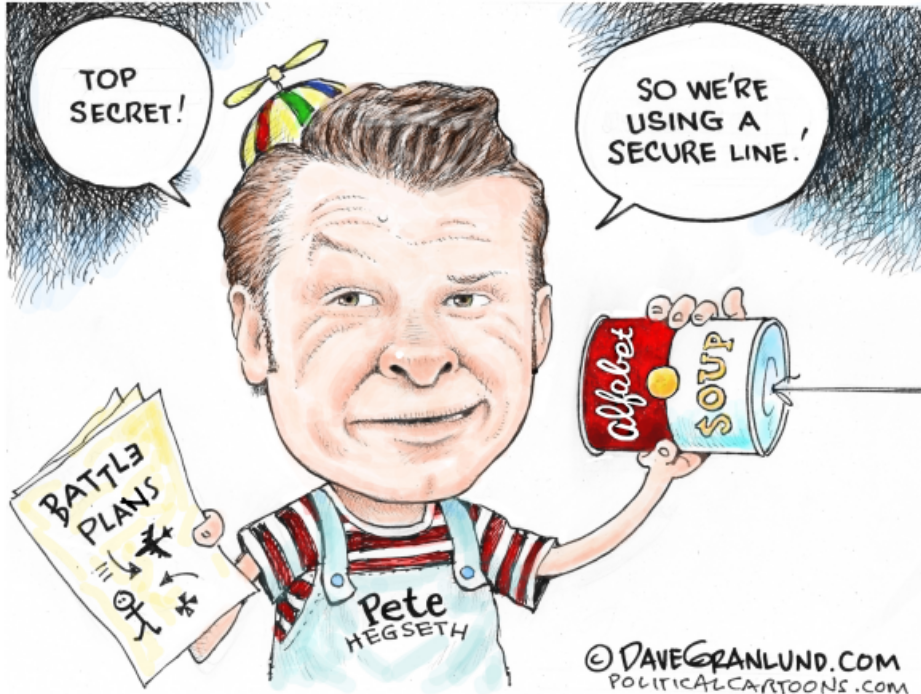First, some celebration:

So we’ve been given a bit of light. Yesterday’s election results were as good as we could have hoped for. With 95 percent of the vote counted as I write, Susan Crawford is winning easily, 55 % to 45 %, over the Musk candidate, Brad Schimel, in Wisconsin. Elon spent a huge amount of political capital, along with real money, trying to elect Schimel. I’m reading that Schimel was running on how loyal he is to Trump, and how he would support Trump’s agenda, and Elon seems to have thought this would bring Trump supporters out to the polls. We see how that worked. From the New York Times:
Even more than Mr. Trump, Mr. Musk emerged in Wisconsin as the primary boogeyman for Democrats. His involvement altered the terms of the election. Instead of making the race an early referendum on Mr. Trump’s White House and abortion rights, Wisconsin Democrats pivoted to make Mr. Musk their entire focus, while Republicans rode the wave of his largess.
Don Moynihan writes on his Substack site, “All signs suggest that Musk was a drag, rather than a boost, to the candidate he invested so much personal and financial capital into.” Musk is a liability to Republicans rather than an asset, in other words. Also, while Republicans won, the results in the Florida House elections were a lot closer than the results in the same districts just five months ago. Republicans who are not in deep red districts and who face elections next year have got to be worried. Worried enough to take back some of Musk’s power? We’ll see. See also Elon Musk Can’t Take the Heat by Tim Murphy at Mother Jones
Sen. Cory Booker’s 25-hour speech turned into something genuinely inspirational. If you missed the closing moments, you can see them here. Frank Luntz, of all people, says the speech may have changed the course of political history. I think it’s a bit early to say that, but I do think it could have helped turn a corner for the Dems. They needed this.
Now on to freedom. There’s an article at The Atlantic by David Graham titled The Top Goal of Project 2025 Is Still to Come. It begins:
“Freedom is a fragile thing, and it’s never more than one generation away from extinction,” Ronald Reagan said in 1967, in his inaugural address as governor of California. Kevin D. Roberts, the president of the Heritage Foundation, approvingly quotes the speech in his foreword to Project 2025, the conservative think tank’s blueprint for the Trump administration. Roberts writes that the plan has four goals for protecting its vision of freedom: restoring the family “as the centerpiece of American life”; dismantling the federal bureaucracy; defending U.S. “sovereignty, borders, and bounty”; and securing “our God-given individual rights to live freely.”
Now, what does this tell us about how people like Roberts define “freedom”? Is “restoring the family as the centerpiece of American life” freedom? What sort of family is being restored? Graham continues,
A focus on heterosexual, married, procreating couples is everywhere in Project 2025. “Families comprised of a married mother, father, and their children are the foundation of a well-ordered nation and healthy society,” writes Roger Severino, the author of a chapter on the Department of Health and Human Services and a former HHS and Justice Department staffer. … He argues that the federal government should bolster organizations that “maintain a biblically based, social-science-reinforced definition of marriage and family,” saying that other forms are less stable. The goal is not only moral; he and other authors see this as a path to financial stability and perhaps even greater prosperity for families.
So, apparently, “freedom” requires enforcing a rigidly narrow lifestyle that may work very well for some people, but it doesn’t work for everybody. Those who are not heterosexual or terribly interested in marriage or children just have to suck it up and, what? Give up their freedom?
In this vision, men are breadwinners and women are mothers. “Without women, there are no children, and society cannot continue,” Max Primorac writes in his chapter on USAID, where he served in the first Trump administration. (Primorac calls for ridding the agency of “woke” politics and using it as an instrument of U.S. policy, but not the complete shutdown Trump has attempted.) Jonathan Berry writes that the Department of Labor, where he previously worked, would “commit to honest study of the challenges for women in the world of professional work” and seek to “understand the true causes of earnings gaps between men and women.” (This sounds a lot like research predetermined to reach an outcome backing the traditional family.)
So we’re going back to stuffing all women into a rigidly narrow gender role that requires they give up personal aptitudes and interests so they can stay home and take care of children. I’ve got news for these people: This is not freedom. It’s true that we’re still working to make the motherhood-and-career mix work a little more rationally. But I think we can get there.
The Labor Department would produce monthly data on “the state of the American family and its economic welfare,” and the Education Department would provide student data sorted by family structure. Severino suggests that the government either pay parents (most likely mothers) to offset the cost of caring for children, or pay for in-home care from family members; he opposes universal day care, which many on the right see as encouraging women to work rather than stay home with kids.
This makes me crazy. First, I suspect nearly all families who need day care call on family or trusted friends to provide that care before they resort to paying for day care. But very often that’s not an option. Republican politicians don’t want to pay for reliable day care, but when jobs are going unfilled because women don’t have reliable day care they don’t like that, either, especially if the unemployed mothers need food and housing assistance. It can be a burden even for women who keep their jobs. I well remember having to spend time at work on the phone looking for day care because of a school break or some other interruption in the usual arrangement. It cuts into productivity, and it’s a horrific expense.
The parts of this family-oriented agenda that the Trump administration has already moved to enact are some of those that enforce a strictly binary concept of gender, aiming to drive trans and nonbinary people underground; open them up to discrimination at work, at school, and in the rest of their lives; and erase their very existence from the language of the federal government.
And I’m still not seeing the “freedom.”
Trump has not yet made stricter abortion policies a focus in his new term. Though he has boasted about appointing Supreme Court justices who overturned Roe v. Wade, he seems wary of pushing further, for fear of political backlash. Project 2025 has no such qualms. Severino recommends withdrawing FDA approval for abortion drugs, banning their prescription via telehealth, and using 1873’s Comstock Act to prohibit their mailing.
I’m not seeing pro-freedom agenda there, either. Not having a say over one’s own body is kind of not free.
I’ve been complaining about the Right’s misuse of the word freedom for years. It’s like that to be free, in their sense of the word, we have to agree to not be free, really. We give up our actual freedom to enjoy a kind of theoretical freedom. Or something.
And then there is their twitchiness about “government bureaucracy.” Sometimes the lack of it is a bigger threat to freedom. Just ask the people standing in lines outside Social Security offices these days. But, speaking of Reagan, I’m sure you remember what he said when the Medicare Act was passed way back when. “We are going to spend our sunset years telling our children and our children’s children, what it once was like in America when men were free.” How “free” is it to not be able to afford health care? How “free” is it to have a debilitating illness or chronic pain that goes untreated or else puts you in debt for the rest of your life? Where is the “freedom” in that? If we citizens choose to spend our tax money toward providing access to medical care for everybody, as other nations do, how is that “not free”? I honestly don’t understand.
In brief, the Right’s idea of freedom has nothing to do with individual self-determination or being free from hindrances that keep you from fully living your life. What it means is that they want to live in a country that reflects their personal biases and that protects them from things that make them uncomfortable, like brown people, especially foreign ones, and assertive women of any color. That’s why they love Viktor Orbán so much. It’s the most corrupt country in the EU, and the people have no guarantee of civil liberties, but he’s doing a heck of a job shoving gay people back into the closet.

